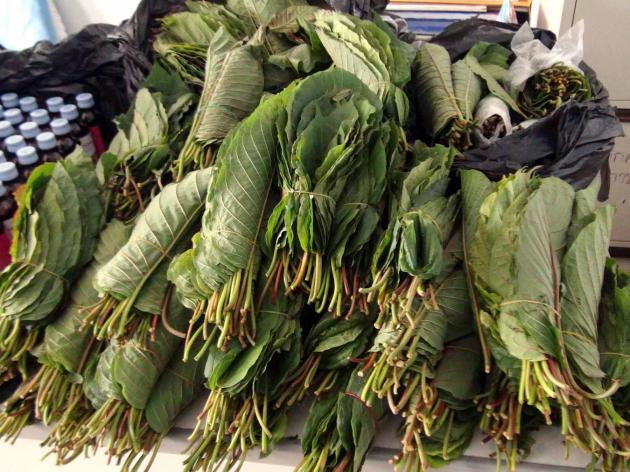Kratom may be taken off narcotics list

Justice minister pushes for legalisation of the herb, citing medicinal properties
The Office of the Narcotics Control Board (ONCB) is responding positively to the proposed legalisation of kratom (Mitragyna speciosa), which is currently on the narcotics list.
The ONCB will be meeting with the Food and Drug Administration, the Public Health Ministry and the National Police Office next week to discuss whether kratom should be removed from the list.
Available records show that Thailand is the only country that describes kratom as a narcotic.
“We will listen to the opinions of all relevant parties,” ONCB secretary-general Pongsapat Pongcharoen said yesterday.
Justice Minister Chaikasem Nitisiri, who is pushing for the legalisation, said he grew up in Bangkok’s Thon Buri area where kratom was grown and used, and he had never encountered anybody going into a drug-crazed stupor from its consumption.
“In fact, kratom was used as a traditional medicine in the past,” he said, adding that he did not wish to promote the use of kratom, but believed it may distract people from using harmful drugs like methamphetamine or crystal-meth.
“Caffeine in coffee and energy drinks is also more addictive than kratom,” he added.
Meanwhile, Dr Anek Yomchinda, chief of the Central Institute of Forensic Science, admitted that preliminary studies showed that kratom did indeed have medicinal properties.
“In New Zealand, it is a component in the production of painkillers and antibiotics,” he said.
A Senate-appointed committee, tasked with studying the pros and cons of kratom use, has found that the plant contains mitragynine, which serves as an analgesic. While its pain-easing effect is about 10 times weaker than morphine, it does not have an adverse effect on the respiratory system nor does it cause nausea, the committee said. There are also no records to show that kratom consumption might be behind crimes.
The study suggests that relevant authorities decided to ban kratom in 1943 because they could not collect tax on it like they did on opium consumption.
The committee also pointed out that if kratom were to be legalised now, it could deliver economic benefits to Thailand, where it is an indigenous plant.
“It can be used in the production of several medicines, and can also cut down on Thailand’s dependence on imported morphine,” the panel said.
A survey shows Satun province had the highest number of kratom trees. Also, truck drivers and labourers widely consume kratom leaves because it keeps them alert. In addition, kratom is cheaper than coffee and energy drinks costing between Bt1 and Bt3 per leaf.
